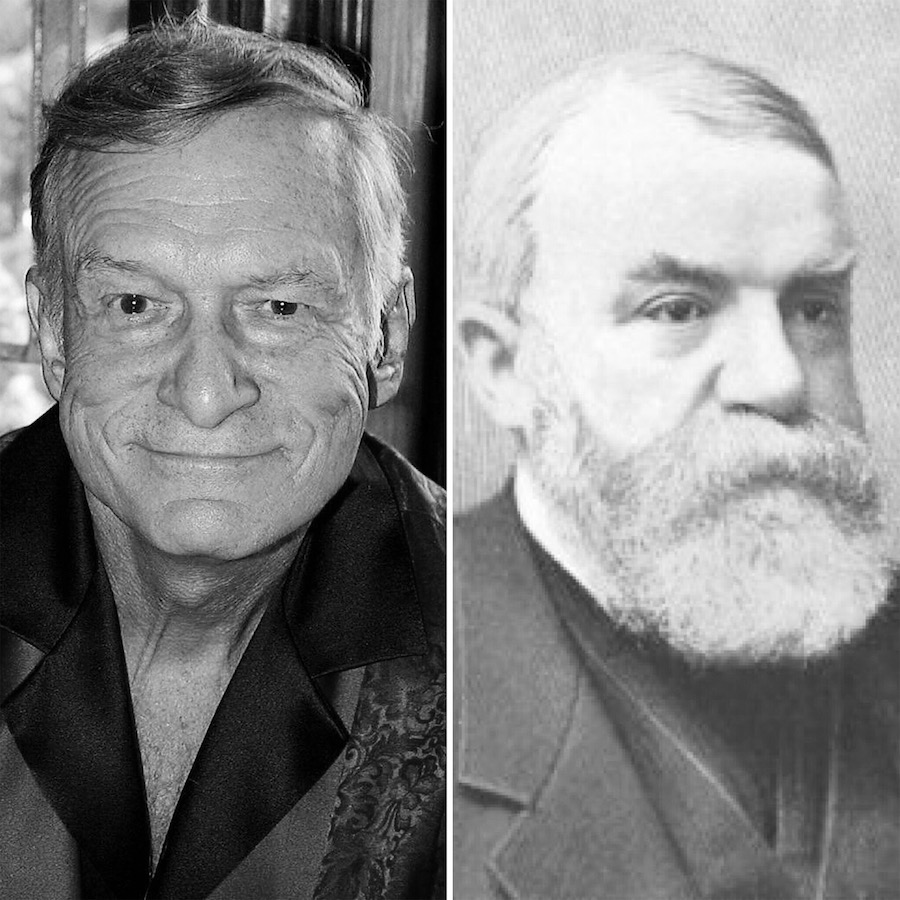
Hugh Hefner and D.L. Moody—these are two names (and pictures) that you don’t typically see side by side.
In a Chicago Sun-Times article on the most influential Illinoisans, Hefner and Moody were listed one after the other. Here was their rationale:
Hugh M. Hefner (1926-2017), publisher and bon vivant. Steinmetz High School graduate Hugh Hefner was a product of the Northwest Side Bungalow Belt. His imagination and drive forged a publishing empire and changed the social and sexual mores of American society in profound ways during the 1950s and 1960s. Whatever else one may think of him, he was one of the most influential people of the mid-to-late-20th Century.
Dwight Lyman Moody (1837-1899), American Christian evangelist, author, publisher and founder of the Moody Bible Institute. Born in Massachusetts, but influential in Minnesota and Illinois. Moody converted to Evangelical Christianity as a 17-year-old in April 1855. During the Civil War, President Lincoln visited and spoke at a Sunday School meeting he sponsored on November 25, 1860. Moody preached on many battlefronts including Shiloh, Stones River and Richmond. After the Civil war he moved to Chicago begin a congregation in the Illinois Street Church. Wiped out by the Chicago Fire, Moody began anew and over the next 20 years he became internationally known, holding many religious revivals in Great Britain and Sweden. Moody led the Chicago Bible Institute, and after his death the Chicago Avenue Church was renamed the Moody Church and the Chicago Bible Church became the Moody Bible Institute we know today.
If influence is measured by your ability to affect someone else—their opinions, character, development, actions, and thoughts—then yes, both Moody and Hefner are influential.
And if influence is what we truly want, then we’re living in the best time of history, since everyone has a voice—all you need is a smartphone or a computer to amplify it. Just take a look at your social media feed and you’ll know exactly what I’m talking about.
However, what we desperately need to understand is that influence is not neutral.
You are responsible for those you influence—for the good and for the bad.
So if you’re influencing people toward evil, you need to man up, recognize that, and take responsibility for it. Sure, you aren’t forcing anyone to do anything, but your influence may be giving someone the permission that they were looking for.
And in the same way, if you’re influencing people toward everything that’s true, noble, right, pure, lovely, and admirable (Philippians 4:8), then this is great, but recognize that the greater the influence, the greater the fall.
The Age of Outrage
I first came across this Chicago Sun-Times article when reading my friend, Ed Stetzer’s new book, Christians in the Age of Outrage: How to Bring Our Best When the World Is at Its Worst.
In one particular chapter, Ed compares these two evangelists. Yes, Hefner was an evangelist too—just not quite in the same way that Moody was. In fact, when you examine their lives, both lived in hostile and divided times. Both contended for their faith and their beliefs. And both were essentially missionaries for their worldviews.
The difference—very clear difference—is whose kingdom each man was trying to build.
Here’s how Ed Stetzer puts it in, Christians in the Age of Outrage:
Over the course of his life, Hefner won millions to his “gospel” and in the process redefined morality and sexuality for many. He was a missionary for pornography, selfishness, and hedonism. His legacy is the ruin of sexual identity and morality he has left behind.
Yet Hefner is not alone. Missionaries fill our world, each selling a different gospel. We must recognize that evangelism is going on every day in countless ways. Our call to engage our mission field of outrage is in part because we, like Moody, are to be lights in this darkness. If we reject this call, not only are we withholding bread from the starving, as Spurgeon warned, but we are leaving the broken and hurting to the missionaries of false gospels that behind them in heavier chains.
You have a voice, so in this age of outrage, learn how to steward it well.